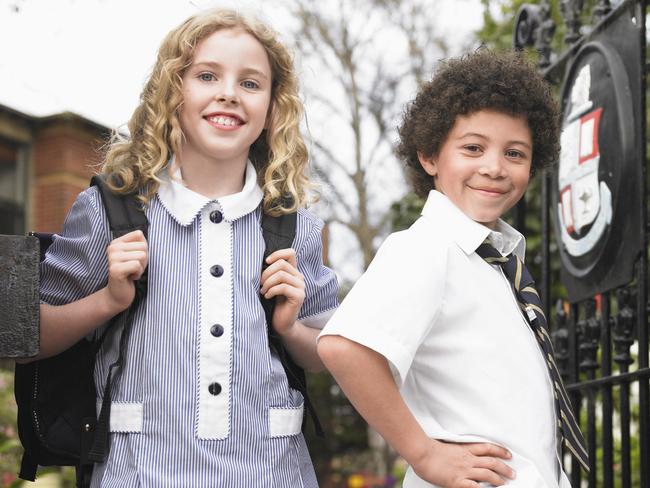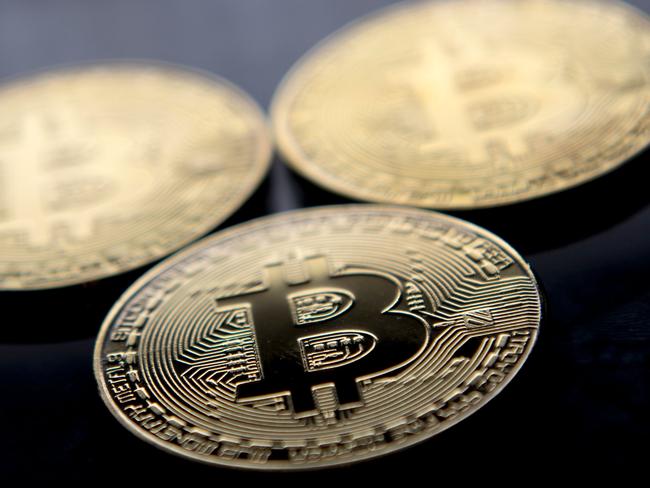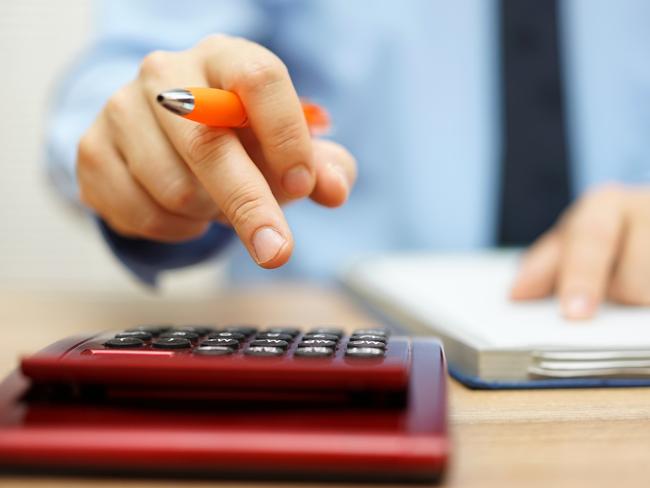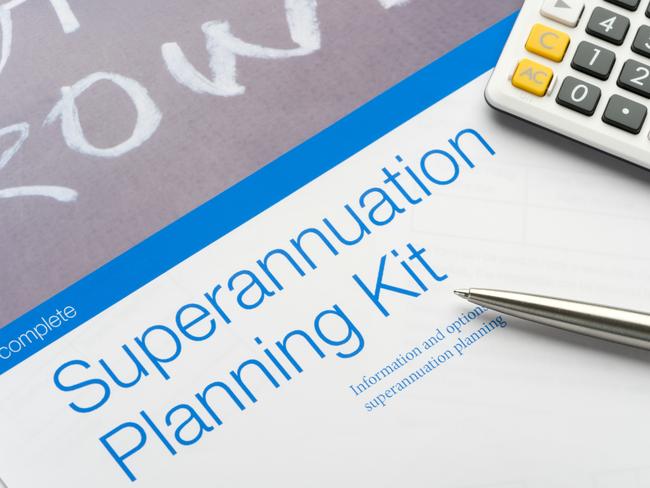Barefoot Investor: Time spent with family trumps a pricey education
IN Australia, about 35 per cent of kids go to a private school, which is one of the highest percentages in the world. Aussie parents spend, on average, $50,000 on their kids’ education, and many can’t afford it. So is it a good investment, asks the Barefoot Investor.
Barefoot Investor
Don't miss out on the headlines from Barefoot Investor. Followed categories will be added to My News.
THIS week was the cut-off for enrolling our eldest son in primary school.
It’s been a highly stressful time for my wife, who’s been agonising over our choices: public, private, Catholic.
Not me.
NO CAREER GAIN AFTER PRICEY PRIVATE EDUCATION
THE DANGERS OF HAVING MULTIPLE CREDIT CARDS
BITCOIN ATTRACTING INVESTORS WITH NO IDEA
I’m a big fan of public schools, especially for primary school. And so, when I went to the open day for our local public school I asked just one question:
“Who is your school banking with?”
My wife rolled her eyes and then proceeded to warn me against writing about this highly contentious topic:
“You shouldn’t write about public versus private schools … you’re going to upset a lot of parents who’ve already made their choice.”
Excellent point. But I’m a finance guy ‒ and I don’t give a semicolon.
So here goes:
In Australia, about 35 per cent of kids go to a private school, which is one of the highest percentages in the world.
And it’s bloody expensive. Private school fees have been growing at twice the rate of inflation. Australian parents spend, on average, $50,000 on their kids’ education, according to a report by NATSEM (National Centre for Social and Economic Modelling).

And many parents can’t afford it. The Australian Financial Review recently reported that a quarter of parents borrow for their kids’ private school education, and one in seven run up a credit card to pay school fees.
So is it a good investment?
Well, several long-term studies have proven that there is zero correlation between school fees and academic results (if you want to get a real eye-opener, read Free Schools by David Gillespie).
Still, some parents argue that if you send your kid to a private school they won’t be hanging out with a bad crowd. Then again, the best drug dealers go to private schools (or at least they did when I was a teenager).
So if school fees aren’t a predictor of a child’s success, what is?
Well, the biggest predictor of your kid’s happiness and success in life is how much time you spend with them.
Here’s the point: parents are often forced to work longer hours just to pay the ever-increasing fees.
Personally, I’d rather dial down the cost and spend more time with my kids, which would make me less stressed to boot!
So our son has been enrolled in a local public school. I think he’ll be fine.
After all, I’m going to put my hand up to teach the school’s financial education class.
Tread Your Own Path!

MON ASKS: I have been doing some research and I am considering investing in Bitcoin, or another cryptocurrency (Ethereum), both of which seem to be on the rise at the moment. What do you think?
BAREFOOT REPLIES: What do I think?
I think you’re the first person who’s asked me about crypto this year!
In December last year approximately one in three emails I received were asking how they could get rich trading Bitcoin in their undies (or words to that effect). Carpenters, single mothers, AFL football commentators ‒ — everyone wanted in.
The peak in emails followed the peak in the Bitcoin price: it hit an all-time high of $US19,783 in late December.
And then … the emails stopped.
Here’s why: today Bitcoin is trading at about $US8200, which translates into a stomach-churning 60 per cent loss for the crypto-mums in my wife’s mother’s group who bought at the peak.
Lately, Bitcoin has been rallying, which is presumably why you’re emailing. (Either that or you just read about this new craze in an old magazine in your doctor’s surgery. If that’s the case, you’re a little … late.)
So, what do I think?
My view hasn’t changed.
I think that cryptocurrencies are a game-changer: it just makes so much sense that eventually there will be one dominant currency for the internet. Trouble is, I’m not smart enough to know what it will end up being ahead of time. And most ICOs are shadier than Bernie Madoff.
So even though it’s deathly boring, I only invest in things that generate income.
So when the price goes down (hello Telstra!), I’m at least being paid a dividend
to hold it.

YOU DON’T NEED IT
DOUG ASKS: Today I opened accounts with ING Direct and applied for a credit card. I also transferred money from my current bank to ING.
With my credit card request, it was denied because I am retired and do not get a weekly pay slip.
My wife and I get over $40,000 a year tax-free, own our home, and have very little debt. Their decision to refuse me, even though I have an exceptional credit history, smells of discrimination to me. Your thoughts?
BAREFOOT REPLIES: Yes, it sounds like the bank is discriminating against you … though is that a bad thing?
Given you’re retired and living off $40k a year, it could be argued that you can’t actually afford a credit card.
If you don’t pay it off each month, the interest bill will make everything you buy 20 per cent more expensive. And if you are paying it off each month, why bother?
Rewards points, right Doug?
Unfortunately rewards points are “so 2016”.
Analysis from comparison site Mozo has revealed the Big Four banks have slashed the value of their rewards points by a whopping 96 per cent since 2016. Here are the figures: if you spend $24,000 a year on your credit card, you’ll receive, on average, just $12 in rewards.
And if you forget to pay your CBA credit card bill you’ll be hit with a $20 fee, plus backdated interest.
How’s that for discrimination?

MIKE TYSON’S ADVICE
MARY AND PHIL ASK:
We read your book and loved it. However, we got a little confused near the end when talking about superannuation approaching retirement (which we hope to do in two to three years).
My husband and I are each putting away extra super to bring it to 15 per cent.
Does the entire 15 per cent need to go in as cash, or just our extra contribution over our employer payments?
And will Hesta do this for us?
BAREFOOT REPLIES:
What haunts me is the letters I received back in 2008 from people just like you.
They were on the cusp of retirement, and then the global financial crisis pummelled their portfolios.
Finance professors call this “sequencing risk”. Yet it’s really just bloody common sense: if you’re retiring you should have enough money to ride out a downturn without having to be a
forced seller.
As Mike Tyson says, “Everyone has a plan, until they get punched in the mouth.”
Well, that’s why I believe it’s prudent to build up a cash buffer in the final years before they retire. I like three years of cash (minus any age pension payments). Though I’m conservative.
You should call your super fund and ask to speak to one of their financial advisers, who can help you structure your super, so the market doesn’t land a killer blow this close to the final round.
OUR UNSUNG HEROES
SAM WRITES: I am camping with my husband (first time ever) and have stopped to read your Barefoot email.
I was really pleased to see your praise for financial counsellors. They really are unsung heroes and great advocates too. As a social worker, I know how often these invariably calm and focused people help those who are vulnerable and in dreadful debt (not always large amounts, but soul-destroying high interest).
They systematically help people begin to navigate a way out and to regain hope in their futures.
BAREFOOT REPLIES: I tried to get my wife to go camping once … didn’t work out that well.
We’re coming off the largest debt boom in history, and as a wealthy nation we need people like financial counsellors (and social workers) who can help our most vulnerable Aussies.
Everyone needs someone fighting in their corner.
The Minister for Social Services’ office contacted me after last week’s column to arrange a fireside chat. I’ll keep you posted.
If you’ve got a burning money question, or you want to win a fight with your hubby, go to barefootinvestor.com and ask a question.
The Barefoot Investor holds an Australian Financial Services Licence (302081).
This is general advice only. It should not replace individual, independent, personal financial advice
The Barefoot Investor: The Only Money Guide You’ll Ever Need
(Wiley) $29.95. Available at heraldsun.com.au/shop $27.95


